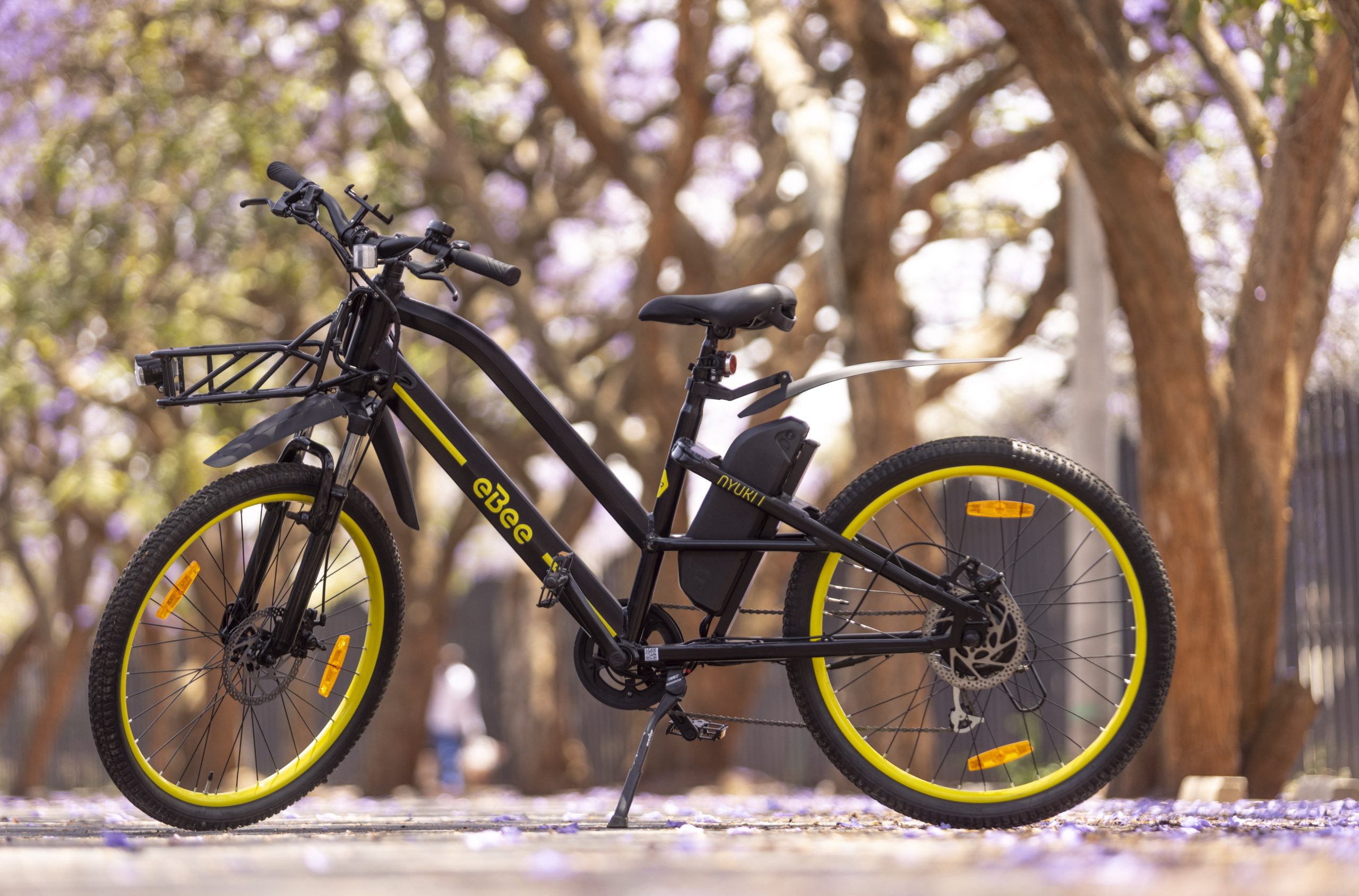By Timothy Albright
Have you seen delivery cyclists on electric bikes in Nairobi streets? Autonews Magazine set out to understand these bicycles and uncover the trend, which led this writer to eBee – a Kenyan electric bicycle company founded in 2019.
According to Sharon Wangari, eBee’s customer experience officer, the company identified a gap in the urban food delivery space: most delivery companies used motorcycles, which increased delivery costs. “Motorcycles are more expensive to maintain than bicycles.
They require fuel, regular servicing, and insurance. Customers bear these costs,” Sharon Wangari stated in an interview with Autonews magazine. To help delivery firms cut operation costs, eBee introduced an electric bicycle called Nyuki, a Kiswahili word for a bee.
It offers alternatives to motorcycles in the delivery sector. Wangari stated that eBee began operations in November 2021 with 30 Nyuki electric bicycles and leased the units to delivery companies.
The electric bicycles were available for rent only. The riders covered an average of 100 kilometres per day. A portion of the riders desired to purchase the electric bicycle. “As a result, eBee expanded its business model to include selling bicycles,” said Wangari.
Today, eBee offers a daily rate of KES 350, a B2B (subscription) leasing model to individual customers. Companies pay KES 9,500 per month, which includes maintenance and servicing, and a soon-to-be-launched instalment payment option called ‘lease to own’ or ‘rent to own’.
Alternatively, customers can pay KES 99,000 to own the bicycle, including a battery and a charger. The eBee has a fully electric peddle assist mode, allowing riders to conserve energy and avoid fatigue.
Depending on battery capacity, an eBee can cover up to 90 kilometres on a single charge. The commuter and leisure batteries have a range of 40-60 km on a full charge, while the XL battery covers 70-90 km depending on usage. Nyuki has an 80 kg carrier load capacity and a digital display that shows the battery charge level and cycling speed.
The battery takes about 2 hours to charge to capacity. Maintenance and servicing of the bikes should be done once a month, primarily for parts that wear out quickly like brakes and gears. The company operates a service centre in Kilimani, Nairobi.
Apart from the electrical components, the bicycle can be serviced at a local repair shop. Initially, eBee was importing bicycles into Kenya. However, taxation, which classifies electric bicycles as motorcycles, forced the company to switch to domestic production, Wangari revealed.
“We also realized the importance of durability, especially in the Kenyan context, and after feedback from riders, we conducted extensive research and developed a new bike – Nyuki. It is assembled at a plant in Limuru, Kiambu. We source about 85% of our materials locally, which makes it less expensive than importing,” she told Autonews.
The company imports batteries from Uganda. The batteries are removable and rechargeable, with a one year warranty and a lifespan of up to five years. eBee also offers free battery-swapping services to leasing clients. Battery swapping ensures riders remain uninterrupted. As it expands, eBee has big plans for the future. Wangari and her team hope to not only double their fleet size to 4,000 bicycles on the road by the end of 2023 but also play a significant role in shaping the future of transportation in Africa, especially in the urban areas. The company’s audacious goal is to have a million bicycles on the road by 2030,” she said.
They hope to pave the way for a more sustainable, environmentally friendly, and convenient mode of transportation that will transform how people travel across the continent.

Nyuki Niko naye huku Meru maua watu wanashidwa nilitoa wapi it is so nice can we be partnersnifungue nduka ya zenyewe huku mkue mna ni supplies
Hello John, glad to know you are enjoying your nyuki bike.
Do you have branches in Malindi or Mombasa?
Hello Evans. We are in Mombasa, Diani, Bamburi & Mtwapa